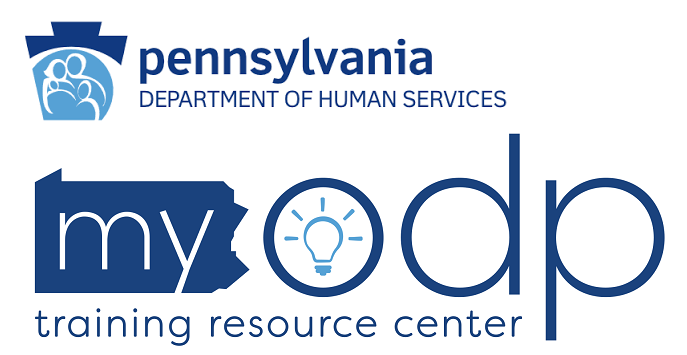Positive Approaches Journal, Volume 8, Issue 3
O'Brien | 47-54

Volume 8 ► Issue 3 ► 2019
Fair and Prudent Risk
John O’Brien
Introduction
When Bob Perske introduced the concept of dignity of risk he intended “to illustrate [with practical examples] that there can be such a thing as human dignity in taking risks, and there can be a dehumanizing indignity in safety” 1. The risks he has in mind are far from trivial. In a discussion of dignity of risk for parents, Perske,2 among less extreme examples, itemizes a mother’s memorial to her son with Down syndrome who died trying to save his brother in a house fire; an account of five group home residents and a staff person who drowned while trying to save swimmers caught in an undertow; and German institution residents who, for a time, outwitted and then faced, with dignity, agents of the Nazi euthanasia program whose grey vans prototyped a means of mass killing.
Perske makes five arguments, paraphrased here, which are relevant today.
-
No matter the motivation, imposing unnecessary avoidance of risk degrades human dignity, reinforces prejudiced beliefs and deprives people of opportunities to show courage and develop their capabilities.
-
There is great developmental power when high expectations and mindful supports encourage accepting the risks that accompany the pursuit of a person’s purposes.
-
Determining whether a risk is fair and prudent is a matter of judging the likely fit between a particular person’s capabilities and protections and the foreseeable demands of specific circumstances.
-
Judgement of the fairness and prudence of a risk can be skewed by underestimation of people’s capabilities and courage in the face of actual risk and their resilience to adverse experiences given good support.
-
Bias toward underestimating a person and risk avoidance can be mindless, built-in to internalized beliefs, taken-for-granted routines and policies, structures, and culture.
Competing Goods
Retrieving these foundations regarding the idea of dignity of risk matters because the changes that occurred in the 50 years since Perske’s writing have sharpened conflict between the pursuit of different positive ideologies. The field has never been so certain of people’s right to choose. The first General Principle in The UN Convention on the Rights of Persons with Disabilities is, “Respect for inherent dignity, individual autonomy including the freedom to make one’s own choices, and independence of persons.”3 Also, the domain of service provision has never been so concerned with assessing, preventing and managing risk. At its best, this concern actively promotes safety and health, and anyway it related efforts to comply with regulations and to minimize liability. Efforts to dissolve the conflict by subordinating one good to the other are unsatisfying. Neglecting concern for health and safety opens the way to avoidable harm; asserting the supremacy of others’ judgments about health and safety insults dignity and stifles development. Without thoughtful deliberation grounded in particular circumstances, risk avoidance is favored because it is the simpler solution.
Rising consciousness of the ways in which services to people with intellectual disabilities (ID) and autism historically been offered via power exercised over these often socially excluded people requires reflection and re-examining our thoughts about
risk. Service workers not only have the power to make decisions about risk, they, along with policy makers, also control the assistance available to support people’s efforts to discover and pursue valued social roles. Ethical service providers
and policy makers realize they are accountable for any power inequality that might shape what they offer those who count on their services.
Prudence Shows the Way
Perske shows the way forward in his choice of modifiers for the risk he advocates. Risk, he says, must be prudent and decisions about limiting freedom in order to decrease the chances of risk must be made fairly.
Fair deliberations lead to action that considers both the right to risk and the right to safety and health as each individual exercises their freedom to pursue what matters to them in a specific situation. Prudence – the virtue of choosing the right means to good ends under conditions of uncertainty4– guides fair deliberations. In English, prudence has acquired a shadow of caution and risk avoidance. The Latin translation of a key word in Greek philosophy provides a better understanding of its power. In this usage, prudence means “practical wisdom” (the Greek in Aristotle’s Nicomachean Ethics is pronēsis).
Practical wisdom is the art of realizing general principles in particular circumstances. Prudence moves beyond the binary, “either risk or safety; autonomy or health,” into a socially creative space, “both risk with safety; development of capacity for wise choice”. Prudence doesn’t debate generalities, “Does Susan have the right to attend next week’s church revival?” Neither does it indulge in escaping the creative potential in uncertainty with pre-emptive judgements, such as “The crowd’s emotional excitement will overstimulate Susan and result in unsafe behavior.” Practical wisdom inquires, “How can Susan have the best possible chances to get what she wants from participating in this specific church event? Where can we foresee breakdowns and what combination of accommodation and assistance provides the best odds of preventing, repairing or retreating from them? Together how might we provide or arrange the required support for her.”
Those who have a say in determining acceptable risk have different perceptions of what is dangerous and what limitations are acceptable. Fair deliberations of these differences have preconditions. A fair deliberation is demanding. It calls for grounded inquiry into varying assumptions about danger and active exploration of possibilities for deploying creative support. Practical wisdom takes into account the person’s current capabilities and vulnerabilities, the likely protections and challenges in the situation the person wants to navigate, and the competence of available support. All of these considerations happen under uncertainty: it’s not possible to predict with complete confidence how a future event will play out and how a person will respond. In the event some people melt down in unpredicted ways; others show abilities no one has seen before. Uncertainty can draw the imagination toward the negative, if not catastrophic, “what-ifs”. Low probability losses claim more energetic attention than more likely rewards.5
When the process for deliberating on risk is sufficient, the person themselves is as active a participant as the competence of the rest of the others involved can support. The
individual should be engaged in decision making and in assessing the situation, generating ways to address potential risks, and deciding on a course of action along with support staff. Others actively involved in deliberation should know
the person in a way that gives them a reliable sense of the whole person, including their purposes and preferences as well as their specific vulnerabilities and the impact of their impairments in different life situations. A strong person-centered
planning process clarifies what matters to the person and develops a team able to creatively negotiate differences. When something matters to a person, oftentimes decision-makers have a bias toward doing what it takes to get to yes. Sometimes
professional team members who know the person less well, or managers who know about a person from other’s verbal or written accounts, assume responsibility for pronouncing on questions of risk. A competent supports team deliberates, listens,
raises facilitating questions, and encourages creative responses and prudent decision-making and is made up of those with strong personal connections and day-to-day interactions with the individual who wishes to pursue a potential/perceived risk.
Confidence in the competence, commitment, and relationship continuity of the direct support workers whose assistance the person will rely on in a potentially risky situation reduces uncertainty. There is more room for risk when people and direct support
workers have built trust through shared experiences. There is more room for risk when those who support a person have personal knowledge of what could challenge that person and what is likely to work to recover from unsafe occurrences or breakdowns
in participation. There is more room for risk when direct support workers can draw on past experience in accompanying a person into new experiences to decide when to stay in the background and when and how to step forward.
Organizational Accountability for Power Over People
Organizations have a responsibility to continually improve their capacity to underwrite risk in ways that give increasing scope for pursuit of a person’s purposes or expression of their preferences. One aspect of this responsibility commits an organization
to continually transforming its resources into forms that offer effective support for full, individual participation in community places of interest to the person.
6 When an organization accepts this responsibility, decisions that result in limiting a person’s choice are studied for what they reveal about opportunities to improve individualized supports. Staff schedules that limit support for
night time activities may rule a particular situation too risky. A responsible organization follows this conclusion with a search for better organization of support so that this cause of limitation will have less influence in the future.
A related responsibility encourages organizations to raise consciousness of mindsets that make limiting people’s freedom in the name of protection an unquestioned routine. Culture – our collective and usually unexamined take on “the way it is”– remains unfriendly to expanding the freedom of people with ID and developmental disabilities (DD). Yet people with ID/DD have the right to choose. The expectation of compliance still frames life for most people with ID/DD. An enduring presumption of incompetence disposes courts to routinely grant guardianship, extinguishing legal personhood. A service client is often expected to obey those who “know what is best,” even when those deemed to “know best” come fresh from new staff orientation. As a requirement of public funding for services, people comply with detailed specifications about how they will live, who may assist them, and what support personnel can do. Those placed in group settings live with more constraining norms and structures than people who live with adequate individualized supports. Systemically, the underestimation of developmental potential is common and too often internalized by people with ID/DD.
Deliberations about risk are a site for mindful resistance to the assumption of power over people with ID/DD. Organizations stretch to improve their capacity to offer good support in uncertain circumstances and to include people with ID/DD in deliberations
that take their will and preference seriously. Those assessing risks do not take decisions lightly because they realize that even necessary limitations of risk can deprive a person of their rights and compromise their dignity.
References
- Perske R. Dignity of risk and the mentally retarded. Mental Retardation 1972; : 10(1), 24-27. Retrieved from www.robertperske.com/Articles.html.
-
Perske, R. New directions for parents of persons who are retarded. Nashville: Abingdon Press; 1973.
-
United Nations Convention on the rights of persons with disabilities. 2006. Retrieved from https://www.un.org/esa/socdev/enable/rights/convtexte.htm
- Comte-Sponville A. Petit traitté de grandes vertus. Paris: Universitaires de France; 1996.
-
Thaler R, Tversky A, Kahneman D & Schwartz A. The effect of myopia and loss aversion on risk taking: An experimental test. The Quarterly Journal of Economics,1997; 112 647-661
- O’Brien J. & Mount B. (2015). Pathfinders: People with developmental disabilities and their allies building communities that work better for everyone. Toronto: Inclusion Press; 2005. https://bit.ly/2K5V5KR
Biography
John O’Brien learns about building more just and inclusive communities from people with disabilities, their families, and their allies. He uses what he learns to advise people with disabilities and their families, advocacy groups, service providers, and governments and to spread the news among people interested in change by writing and through workshops. He works in partnership with Connie Lyle O’Brien and a group of friends from 18 countries.
He is a Fellow of the Centre for Welfare Reform (UK) and is affiliated with the Center on Human Policy, Law & Disability, Syracuse University (US), in Control Partnerships (UK), and the Marsha Forest Centre: (Canada). You can find his books and papers at inclusion.com and The Centre for Welfare reform (https://goo.gl/svgNP1)
Contact
John O’Brien
58 Willowick Dr
Lithonia, GA 30038




